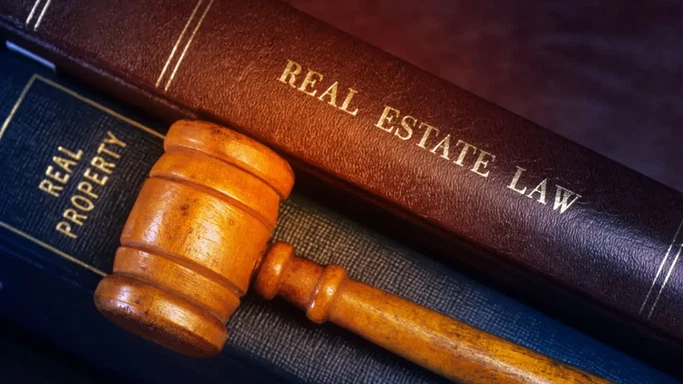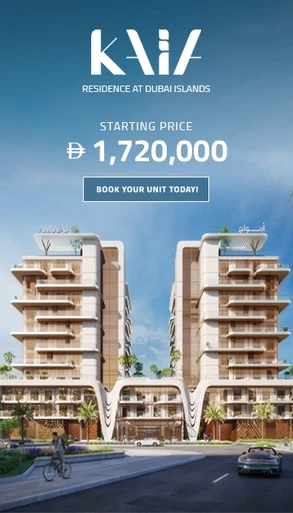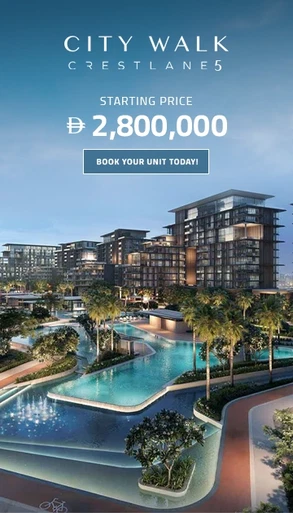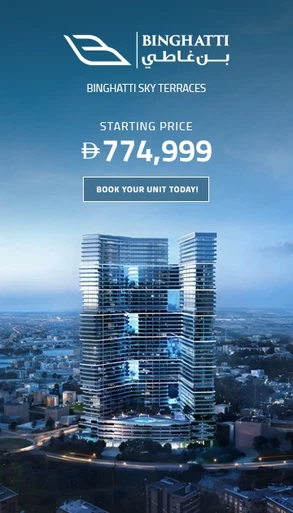The real estate market of Dubai has been an ideal opportunity for investors all over the globe, however, with remarkable updates in laws and regulations in 2025, it has continued to offer powerful opportunities for buyers worldwide. The property market of Dubai thrives on innovation and transparency which has led this place to become a number one choice for investors.
Now, property owners can enjoy firm adherence estimations, new freehold spaces, and improved residency opportunities due to the updated laws of real estate property in Dubai in 2025. The investment potential can be maximized by staying informed about these updates.
Thus, it is significant to know about the laws and regulations of the real estate in Dubai to make rightful decisions and mindful investments. Further, this knowledge also provides an understanding of their rights along with the potential risks associated with renting or buying properties within the UAE.
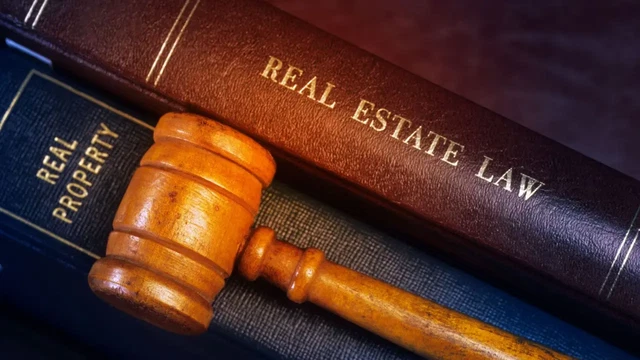
Dubai Real Estate Laws and Regulation for 2025
The real estate market of Dubai has been progressing rapidly over the years and has gained global attention due to its rise in development projects along with the rise in property demand. This land has become a hotspot for investment in real estate.
However, it is the laws and regulations of Dubai real estate that ensure its operation in fair and smooth ways. The authorities responsible for ensuring these laws to remain transparent and stable are the Real Estate Regulatory Agency (RERA) and the Dubai Land Department (DLD).
Significant Updates to Laws of Real Estate in 2025
1. Expansion of Freehold Zones
The freehold zones and the permission of 100% ownership to foreigners have been granted by the laws and regulations of real estate in Dubai.
Moreover, the new regions such as Al Wasl, Meydan, and Dubai South are now open for investment, which are increasingly gaining traction besides already developed and popular Downtown Dubai and Dubai Marina. Furthermore, the inclusion of SZR and Al Jaddaf into freehold zones further expand opportunities for smart investors.
2. Firm Developer Compliance
The developers have to follow strict deadlines as well as financial transparency. The Real Estate Regulatory Agency (RERA) is active and has increased to check for the completion of projects according to the decided schedules that secure the buyers from fraud or delays.
One of the key regulations ensuring the investment security of real estate investors in Dubai is an escrow account. This is a third-party managed account to withhold all the funds until the transaction of off-plan property is completed.
3. Update Residency Visa Essentials
It has been planned that the property investment value of AED 750,000 offers eligibility for the purchasers for an investor visa plan of 2 years, while the investment value of AED 2,000,000 or more qualifies for a Golden visa plan of 10 years. These residency visa essentials have been updated by the Dubai real estate laws to grab investors in the long term.
Categories of Property Ownership
- Freehold Ownership: Freehold ownership lets the buyers get a complete right to the property and the land on which it is built. This acts as a cornerstone of the Dubai real estate laws in 2025, most specifically in reserved spaces.
- Shared Ownership: New amendments in the law of Dubai real estate have permitted joint ownership deals while offering flexibility for business partners and families that are willing to invest in the property market of Dubai.
- Leasehold Ownership: Leasehold properties allow real estate holders to use the specified property for up to 99 years and usually cover commercial as well as residential units. Further, they are operated by detailed contracts for securing both lessees and landlords.
Legal Procedure of Buying Property in Dubai
- Research and Assortment: Identify property that is newly included in the established regions or freehold zones to make sure that it meets the investment goals and budget of the buyers.
- Verify Legalities: Use the Dubai Land Department (DLD) or RERA portals to check the credentials of the developer along with the property title.
- Acknowledge Memorandum of Understanding: This is a document that has outlined purchasing terms and also demands a 10% deposit.
- Transfer Ownership: Transaction is secured with the Dubai Land Department (DLD), where the ownership is transferred officially, ensuring all the documents are endorsed by involved parties.
Dubai Inheritance Property Law
Dubai Property Inheritance Law is complicated as compared to the other property laws of Dubai. The respective laws adhere to Sharia principles for Muslim residents and expats. This implies the distribution of assets based on Islamic inheritance regulations.
The case is slightly different for non-Muslim expats, as Sharia principles do not apply to them. Nonetheless, such communities are required to register their wills with Dubai Courts, ensuring the division of assets as per the desires. Without a registered will, the UAE courts will divide the assets without any gender discrimination.
Legal Implications for Real Estate Developers in Dubai
To participate legally in the industry, Real Estate Developers in Dubai are supposed to be registered with the Dubai Real Estate Regulatory Authority (RERA). Moreover, it is also included in the registration process that the financial as well as time commitment of the developer must be provided along with the business plan.
Further, once the registration process is finished, the developer must stick to all laws of RERA. It is significant to attain a license from RERA before any real estate project begins, and thorough information related to the project must be provided,d including its size, location, and unit type.
This also comprises adherance to all the advertising guidelines, resolving disputes, if any, and providing all essential information. In addition to this, there must be an escrow account that should be set up for every project so that the buyers can safely deposit all their payments.
It will also ensure that the funds are only exclusively used for completing the project. However, negligence in following the Dubai real estate rules and regulations according to RERA will lead to suspension or fines for the project.
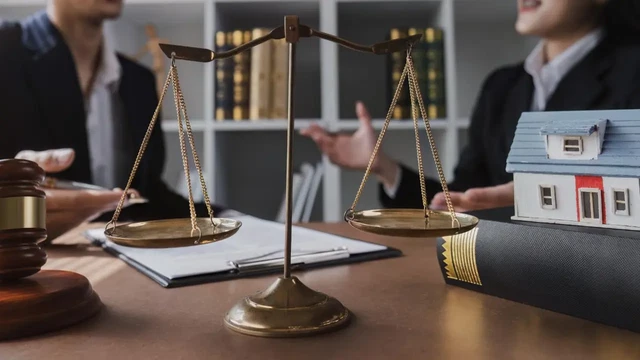
Legal Implications for Real Estate Brokers in Dubai
It is essential to regulate the Real Estate Brokers’ registration for all the brokers living in the Emirates, by law No.85 of 2006, within Dubai Emirates. It is compulsory to receive certified training from the Real Estate Institute of Dubai and pass an exam which is conducted by RERA to act as a real estate broker in Dubai. This enables them to get an estate license. The laws outlined under law No.85 are compulsory to be followed by all licensed brokers.
This law also comprises legal entities involved in the intermediation of the transaction of real estate, including acts such as seeking property that matches the demands of clients, negotiating between the sellers and buyers, preparing as well as confirming sales contracts, providing professional guidance on the matters of real estate.
1. Strata Law Dubai
Law No. 27 of 2007 implies that gated communities and multi purpose developments must be subdivided into multiple layers for efficient use and management.
This legal structure is implemented in multi-unit residences such as townhouses and flats. Further, it also builds the guidelines for the management and maintenance of shared facilities and amenities in the multi-purpose constructions.
2. Three Broker Rules
Three Broker Rules, which are applied by the Dubai Land Department (DLD) stop the sellers from registering their property with more than three brokers at the same time. It is applied to minimize the number of identical listings permitting professional agencies and brokers to distribute proficient services while offering a greater experience for clients who are interested in the properties.
Moreover, this initiative is extremely beneficial for sellers as well as for buyers. Further, the market has also become much more organised by restricting the number of brokers and has helped the laborers to work more effectively and efficiently.
In addition, it has also led to enhanced services for consumers while offering an overall polished and smooth buying and selling procedure.
3. Using Conveyancer
Despite the fact that Dubai has firm real estate laws for securing purchasers still it is complex to make property transactions. Therefore, it is significant to appoint a conveyancer who is a legal expert and transfers the property to the buyer from the seller.
The conveyancer prepares as well as reviews the contracts while taking care of the financial, administration, and legal matters of the property. Hence, by hiring a conveyancer it will be easily ensured that matters are taking place correctly.
4. Rental Property Laws
Aside from the buying and selling of Dubai real estate provides fascinating rental yields. Consequently, the government has generated particular laws regarding rental property in the UAE for securing tenants and landlords.
To rent property in Dubai it is necessary to sign a 1-year tenancy contract to secure rental.
- It is also stipulated by the Dubai property law that the landlord is not permitted to increase the rental rate by more than 15% at once.
- The landlord can not raise the rent throughout the contract period and changes or increments can be made in the contract once it has expired or is nearing expiration.
- In case of any problem between two parties, the Rent Dispute Centers (RDC) for rental control is required to work to resolve the dispute.
- The tenant and owner both are likely to abide by the panel ruling.
Real Estate Laws of Dubai concerning expats and foreign nationals brag some most liberal ownership laws for foreigners all over the world, which has made it an ideal spot for international investors.
Some regions of the Emirates have not implemented any restrictions on buying any real estate which has generated an easy pathway for foreigners to purchase and sell property. This will also boost the reputation of the city as well for being a desirable destination for making investments in real estate.
It is easy to get property in Dubai while offering broad options of properties, from luxury villas offered for sale with beautiful sites of Palm Jumeirah area to more conventional 3-bedroom apartments within Dubai or flats overlooking the famous Burj Khalifa. It is significant to consider that foreign investors are supposed to attain approval from Dubai Land Department (DLD) before purchasing any property.
Cost and Fees for Purchasing Property in Dubai 2025
- Registration Fees: AED 2000 to AED 4000
- Transfer Fees: 4% of the value of property to Dubai Land Department (DLD) based on the value of property.
- Maintenance Fees: Estimated yearly based on the type of property.
- Agent Fees: Commission of 2% of the purchased price.
Tax Implications for Investors in Dubai Property
Dubai is known as a tax haven for investors in property. The real estate laws of Dubai in 2025 have announced that there will be no capital gain taxes or property taxes, even if 5% VAT is implemented to the transactions services related to property transactions, like management fees or real estate brokerage.

Off-Plan Property Laws
Off-plan properties in Dubai, i.e., the properties that are already sold before they are constructed, are present in many real estate transaction processes. There are also some laws and regulations for securing those off-plan property buyers. These laws include:
- The procedure deals with cancellation and obtaining a refund.
- Developers’ responsibilities.
- Protection of buyers.
It is essential to read the agreement of and sale-purchase contracts as well as seek legal advice too while considering to invest in the off-plan properties in order to ensure security.
Residency Visa Investment in Real Estate
It is the most attractive aspect of the real estate law of Dubai that it allows a secure residency by offering property ownership. Moreover, a property value of AED 750,000 or more provides eligibility to the buyers to get an investor visa for 2-year.
Moreover, a property worth 2 million or more offers qualification for a Golden Visa of 10 years. Residency benefits of business opportunities and family sponsorship are achieved through these visa offers.
Technological Advancements and Future Trends
The laws and regulations of real estate in Dubai in 2025 hold technological revolutions such as blockchain for transactions of property that confirm greater security and transparency.
Moreover, digital platforms concerning virtual property spottings and market analysis based on AI tools play a significant role in reshaping how investors are connected with the market.
Closing In
The residents, as well as the non-residents of Dubai, must be familiar with the Real Estate Laws and Regulations in Dubai if they are interested in buying, selling, renting, or investing in an apartment in Dubai.
Getting familiar with the laws and regulations of Dubai real estate properties will be beneficial in learning about the eligibility criteria for investing and knowing who is eligible and who is not.
Moreover, this knowledge will also be helpful in understanding the circumstances that let the transformation process of ownership, the consequences of dual citizenship in Dubai, as well as the time period up to which an expat is able to lease freehold.
The awareness about the real estate property of Dubai will enable the investors to act wisely and maximize the potential for their investments.
Explore More About Dubai...
